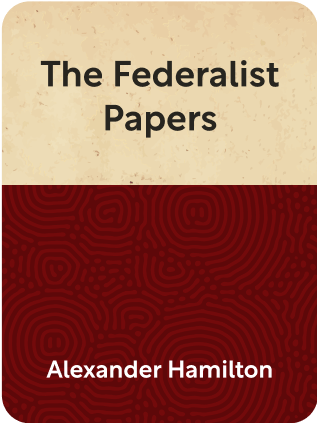

This article is an excerpt from the Shortform summary of "The Federalist Papers" by Alexander Hamilton. Shortform has the world's best summaries of books you should be reading.
Like this article? Sign up for a free trial here .
What is a national government? What is a federal system of government? How can you tell if a system is a national or federal government?
A national government is a single, central government authority. A federal government is one that balances power with its units (like states).
Read how The Federalist Papers address the question of federal government vs national government.
Federal Government vs National Government
But it was not enough to prove that the new government was republican. Critics and opponents worried that the government was too national; in other words, that it created a unitary government that ruled directly over the people, with no regard for the authority of the individual states.
But Publius argued that the new Constitution deftly balanced the priorities of a national government and federal government. What is a national government? A central government with the necessary authority to act directly on the people. What is a federal system of government? A system in which the central government shares powers with subordinate government.
It was a mixture of both national government and federal government systems. What is a national government component of the new Constitution? The people would ratify the new Constitution, but they would not do so in some national referendum that paid no regard to the states. Rather, the ratification process would be on a state-by-state basis and would only go into operation until nine of them ratified it. This preserved an important role for the sovereignty of the states.
Furthermore, the legislative branch under the Constitution would be considerably determined by the states. Similarly, the House of Representatives would be popularly elected, but seats would be apportioned by state. The Senate, for its part, was one of the strongest guarantors of state power under the new arrangement. In having state legislatures select their state’s senators, the Constitution left it entirely to the states (acting in their capacity as states) to determine the composition of the upper chamber of the national legislature. And in assigning every state equal representation in the Senate regardless of population, the Constitution preserved a key federal feature of the old Articles of Confederation.
The Electoral College, meanwhile, guaranteed that the president would not be chosen in a national election that treated the states as non-entities. The states were the elemental unit in the Electoral College, with each state receiving electoral votes equal to its combined number of representatives and senators.
Thus, the states would have a considerable role in determining the composition of the federal government; but the federal government would have no such role in determining the composition of the state governments.
National Powers
The new government balanced the priorities of national government (a central government with the necessary authority to act directly on the people) and federal government (a system in which the central government shares powers with subordinate government).
Indeed, the states would play a key role. What is a federal system of government under the new Constitution? The Senate would be elected by the state legislatures. And in assigning every state equal representation in the Senate regardless of population, the Constitution preserved a key federal feature of the old Articles of Confederation. The Electoral College, meanwhile, guaranteed that the president would not be chosen in a national election that treated the states as non-entities. The states were the elemental unit in the Electoral College, with each state receiving electoral votes equal to its combined number of representatives and senators. In federal government vs national government, this is more federal.
Thus, the states did not just passively accept their status under the Constitution; they would play an active role in shaping the nature of the Union itself instead of deferring to a national government.

———End of Preview———
Like what you just read? Read the rest of the world's best summary of Alexander Hamilton's "The Federalist Papers" at Shortform .
Here's what you'll find in our full The Federalist Papers summary :
- The genius of the founding fathers in how they designed the United States Constitution
- Why it was critical for the United States to form a union rather than stay separated as colonies
- How Alexander Hamilton anticipated social issues that are still relevant today






